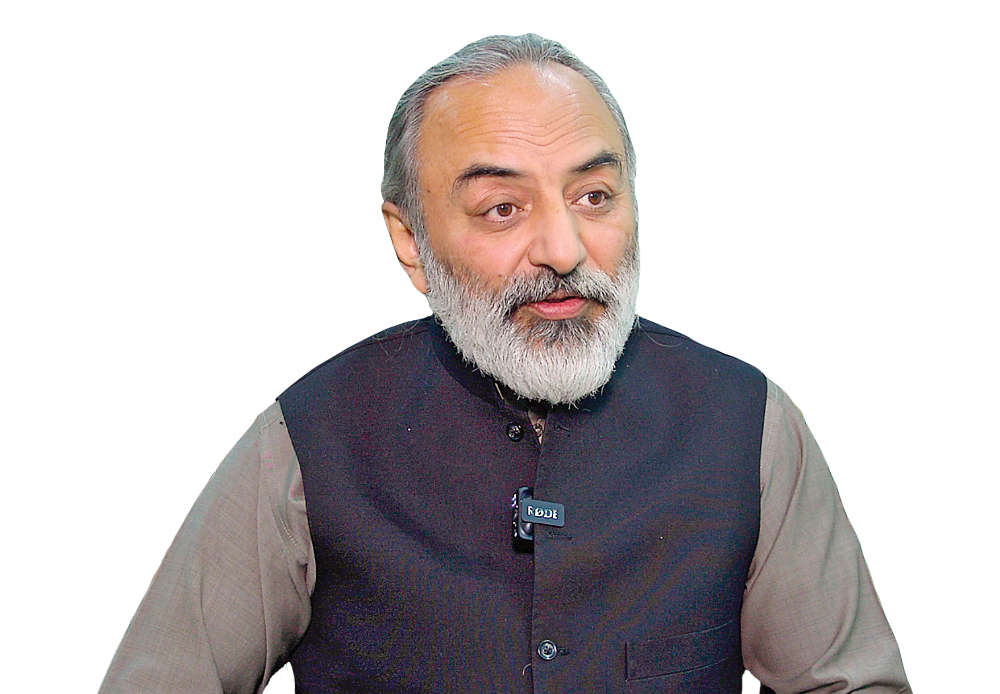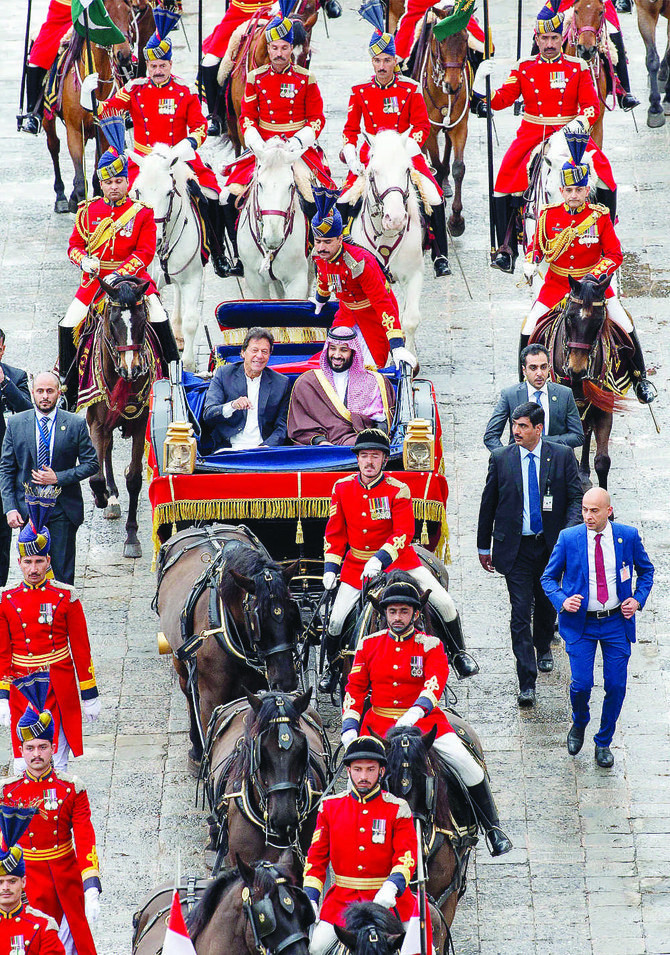RIYADH: Pakistan’s ambassador to Saudi Arabia has hailed a UN resolution to declare March 15 a day to combat Islamophobia globally.
Ameer Khurram Rathore said the international organization’s move would help to break down bigoted stereotypes surrounding Muslims and terrorism.
Saudi Arabia and Pakistan are leading members of the Organization of Islamic Cooperation and together persuaded the UN to condemn Islamophobia.
“We have had full support in the multilateral fora, between Pakistan and the OIC countries, after which we were able to achieve this, and this is a big success.
“After 9/11 (the terror attacks against the US), Islam was associated with terrorism and an effort was made to carve out a stereotype for Muslims. This initiative of bringing the focus on Islamophobia is a long-term thing, it will break down that stereotype that some people tried to build between Muslims and terrorism,” Rathore added.
The resolution was introduced by Pakistan’s permanent representative to the UN, Munir Akram, on behalf of the OIC. It marked three years to the day since a gunman entered two mosques in Christchurch, New Zealand, killing 51 worshippers and wounding 40 others.
The mere fact that the OIC meeting is being held on March 23, which is Pakistan Day, tells us how strong the relationship between Pakistan and OIC countries is and how important it is for every Muslim country to stand together in these trying times.
Ameer Khurram Rathore, Pakistan’s ambassador to Saudi Arabia
The 48th session of the OIC’s Council of Foreign Ministers is taking place in Islamabad. The two-day conference coincides with Pakistan Day celebrations on Wednesday and selected guests have been invited to attend a parade.

Ameer Khurram Rathore,
Pakistan’s ambassador to Saudi Arabia
“The mere fact that this is being held on March 23, which is Pakistan Day, tells us how strong the relationship between Pakistan and OIC countries is and how important it is for every Muslim country to stand together in these trying times,” the envoy said.
The summit is the second OIC meeting to have recently been held in the Pakistani capital. Representatives of 56 OIC member states are taking part in the conference, titled “Partnering for Unity, Justice, and Development.”
As well as addressing issues such as Palestine, and Jammu and Kashmir, conference discussions will also focus on key priorities such as countering Islamophobia, recovery from the coronavirus pandemic, peace and security, economic development, cultural and scientific cooperation, and revitalizing the role of the OIC.
“We are very thankful to the Saudi leadership for supporting us in this endeavor and we look forward to further deepening our relationship in this sphere,” Rathore added.
More than 2 million Pakistanis live and work in Saudi Arabia.
The ambassador said: “It is my greatest pleasure to live in Saudi Arabia, the Saudi-Pakistani relationship is in the hearts of people. Pakistan and Saudi Arabia’s relationship is a special relationship, it is very deep, it is historical, it is rooted in our history, in our culture, in our religious beliefs.
“Whenever there is a need of Pakistan for Saudi Arabia, we always find Saudi Arabia on our side, and vice versa. It has always been like that. “It also shows how considerate the Saudi government is toward the Pakistanis who are living and working here. And they are not only contributing toward the development of Saudi society, but they are also helping Pakistan, in the form of remittances,” he added.
Rathore noted that the bonds between the two nations had helped to forge joint visions and shared perspectives on various issues.
He said: “Earlier, it was the political and cultural aspect which had driven the relationship. But these days, there is keenness on the part of the leadership of Pakistan, as well as the Saudi leadership, that the strength of our relationship should also be reflected in the economic domain. So, both countries are trying to build and deepen our business relationship.
“Economic relations are always a two-way street. We are working on the enhancement of exports to Saudi Arabia. We are working on investments and joint ventures between Saudi and Pakistani businesses.
“There are areas we are paying more attention to these days, and these are IT, the agricultural sector, petrochemicals, and a host of things we see a lot of potential for, and God-willing, we will see the fruits of these efforts coming in soon.”
In 2019, during Crown Prince Mohammed bin Salman’s visit to Pakistan, the Council of Saudi Chambers organized the Saudi-Pakistani Business Forum in cooperation with the Saudi Ministry of Commerce and Investment and its Pakistani counterpart.
Saudi Minister of Commerce Dr. Majid bin Abdullah Al-Qasabi lauded the developments in Saudi-Pakistani relations and pointed out the need to further strengthen strategic business partnerships.
“We are very excited about the new projects, and we are praying for the success and early completion of megaprojects like NEOM, which I think would be a game changer, not only for Saudi Arabia, but for the whole region, and we are looking forward to contribute in that development.”
Both countries have frequently exchanged high-level delegations and developed plans to expand bilateral cooperation. “The nature of our relationship is such that high-level bilateral visits are normal,” the envoy said.
The crown prince received a red-carpet welcome to Pakistan from Khan and his Cabinet members, the country’s army chief, and other senior officials during his two-day official visit in February 2019 when seven memorandums of understanding and agreements worth $20 billion were signed between the two countries. And Khan visited the Kingdom in October.
“We not only coordinate our positions in the multilateral fora. In the bilateral sphere, there is a constant consultation, there are many mechanisms whereby we consult each other very regularly.”
Both nations often exchange gifts, usually dates, and Pakistan considers its relationship with Saudi Arabia as its most “important and bilateral partnership” in current foreign policy.
The people of Muslim-majority Pakistan make regular religious pilgrimages to the holy sites of Makkah and Madinah, and more than 200,000 Pakistanis took part in the 2019 Hajj season.
Last year, around 70 delegations from OIC member states, non-members, and regional and international organizations attended the 17th extraordinary session of the OIC’s Council of Foreign Ministers, hosted by Islamabad, to discuss the humanitarian crisis in Afghanistan.
At the summit’s conclusion, OIC member states agreed to establish a humanitarian trust fund to channel assistance, appoint a special envoy, and work together with the UN in the war-torn country.

































